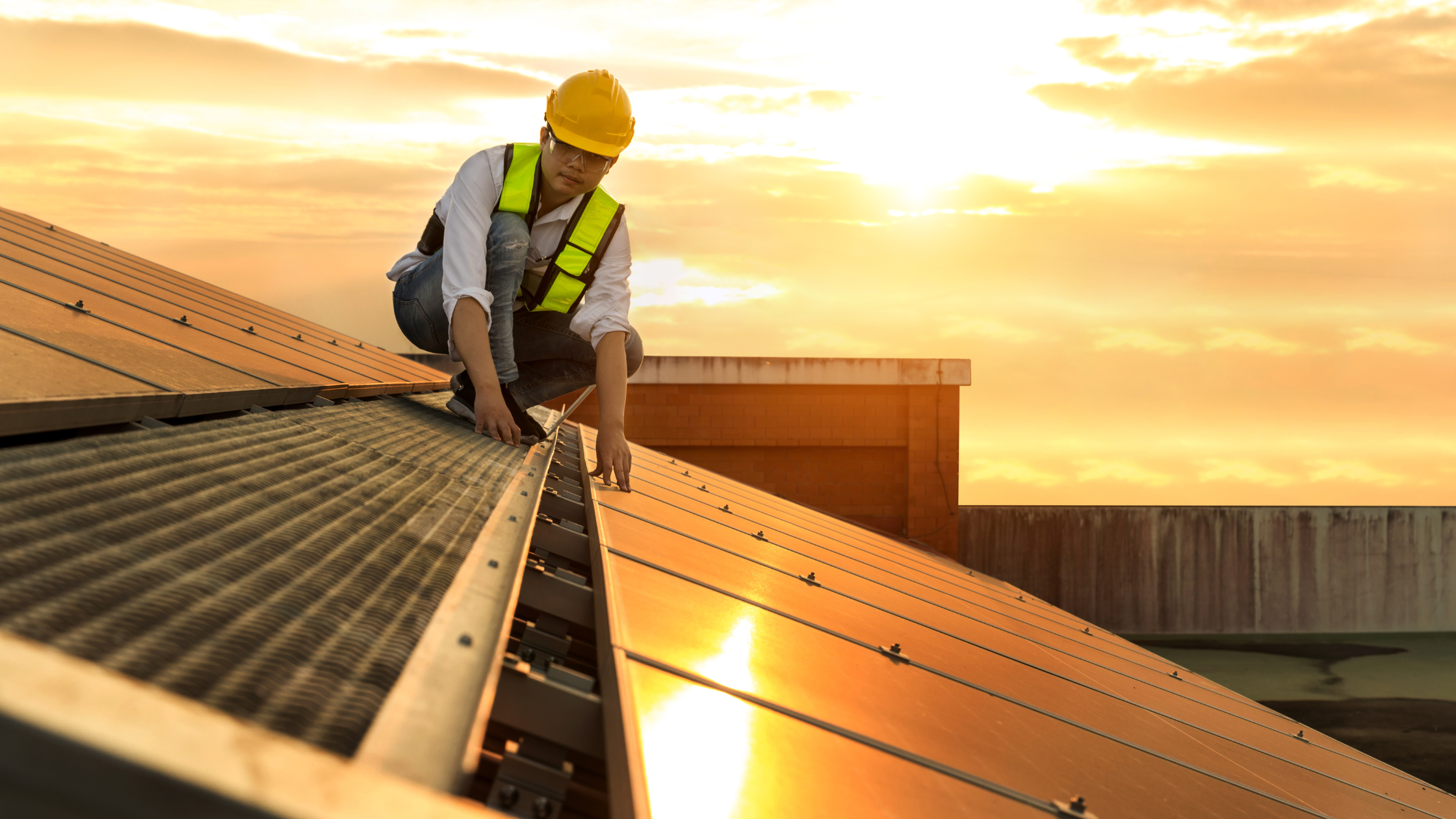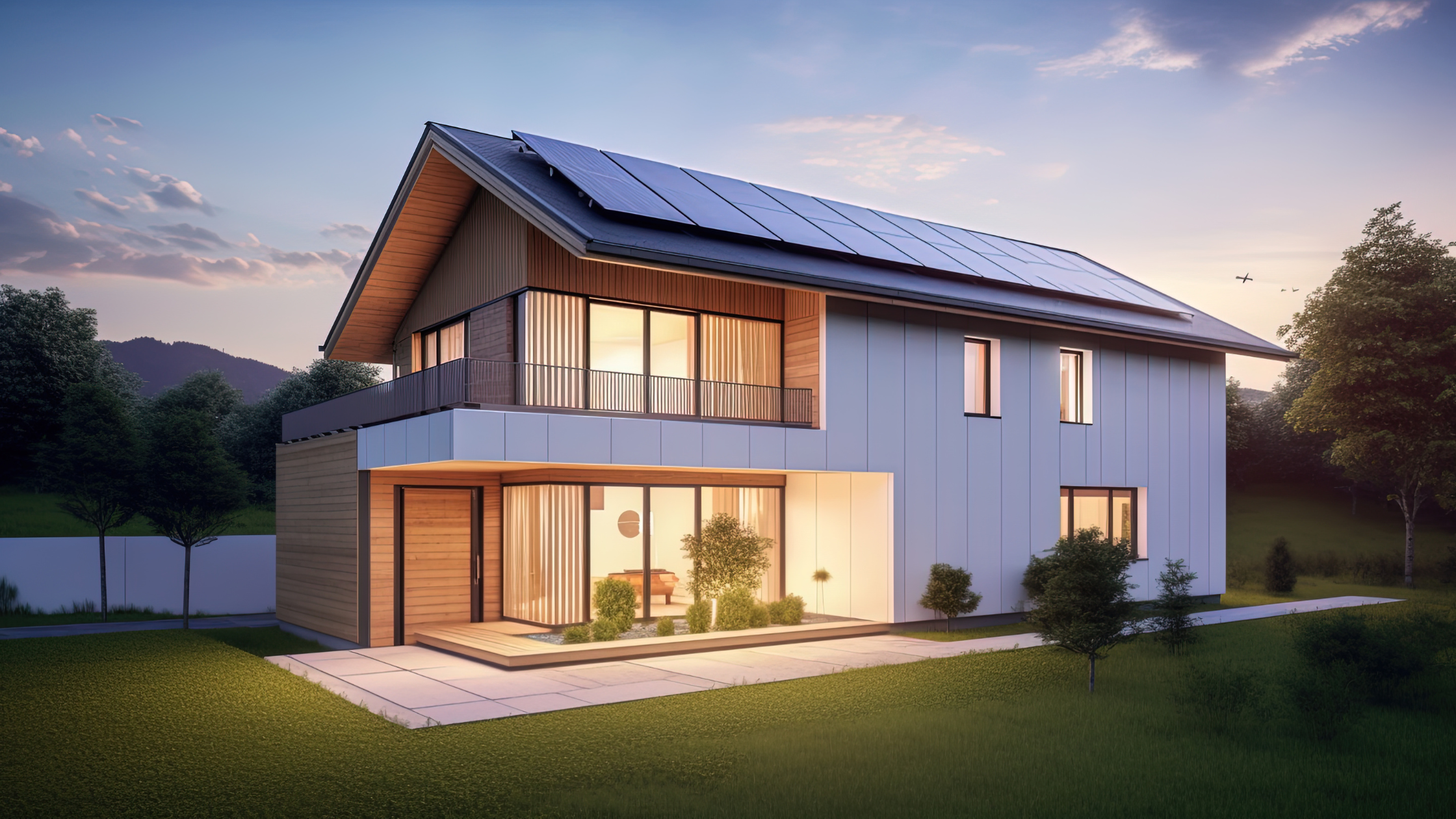
Harnessing the Sun for Savings and Sustainability
In an era where sustainability meets innovation, harnessing the sun for savings and sustainability with a solar power system has never been more attainable for homeowners and businesses.
With 30 years of experience in solar panel systems and solar energy, we understand the transformative power of harnessing sunlight to reduce energy costs and protect our planet for future generations.
Solar energy offers an incredible opportunity to take control of your energy needs while contributing to a cleaner environment. Join the growing movement towards renewable energy and discover how solar power can elevate your savings while making a positive impact — let’s illuminate your path to a sustainable future!
How do Solar Panels Work?
Solar panels work by converting sunlight into electricity through a process known as the photovoltaic effect. Here’s a breakdown of how they function:
Photovoltaic Cells
Solar panels comprise many individual solar cells, typically composed of silicon. These cells absorb sunlight and generate direct current (DC) electricity when photons from the sunlight strike them.
Inverter Conversion
The DC electricity produced by the solar cells is then directed to an inverter. This device converts DC electricity into alternating current (AC) electricity, which is used to power homes and business appliances.
Electrical Panel Integration
The converted AC electricity is sent to your electrical panel, which can be distributed throughout your home or business to power lights, appliances, and other electrical devices.
Net Metering
If the solar panels produce more energy than your building consumes, the excess electricity can be returned to the grid. Many utility companies offer net metering, which allows you to receive credits for the surplus energy generated.
Energy Storage
Some systems incorporate batteries to store excess energy for use during nighttime or cloudy days, providing an additional layer of energy independence.
This seamless integration of technology allows solar panels to provide a renewable energy source that is both sustainable and cost-effective, making solar power an attractive option for many homeowners and businesses.
Why Choose Home Solar Power Systems?
Choosing home solar power systems offers numerous benefits that contribute to both financial savings and environmental sustainability. Here are several compelling reasons to consider making the switch:
Cost Savings on Electricity Bills
By generating your own electricity, you can significantly reduce your energy bills. Many homeowners see a return on investment within a few years due to lower monthly costs.
Increased Property Value
Homes equipped with solar power systems often have higher property values. Potential buyers are increasingly looking for energy-efficient features, making your home more attractive in the real estate market.
Energy Reliability
A solar power system provides a reliable energy source and reduces the risk of outages during peak demand times.
Environmental Impact
Solar energy is a clean, renewable resource that reduces your carbon footprint. By utilizing solar power, you contribute to the reduction of greenhouse gas emissions and dependence on fossil fuels.
Energy Independence
With solar power, you gain more control over your energy supply. Generating your own electricity helps protect you from fluctuating energy costs and price hikes from utility companies.
Low Maintenance Requirements
Once installed, solar power systems require minimal maintenance. Most solar panels come with warranties of 25 years or more, providing homeowners with peace of mind.
Incentives and Rebates
Many regions offer tax credits, rebates, and other incentives to encourage the adoption of solar energy, making it financially easier to invest in a solar power system.
With these manifold advantages, transitioning to home solar power systems not only enhances your financial well-being but also aligns with the growing emphasis on sustainability, making it a wise choice for today’s conscientious homeowners.
Support Renewable Energy Initiatives
A solar power system provides a reliable energy source and reduces the risk of outages during peak demand times.
Long-Term Financial Benefits
The long-term financial benefits of solar power are substantial and can lead to significant savings over the lifespan of the system. Here are key advantages to consider:
- Reduced Energy Bills
- Return on Investment
- Increased Home Value
- Incentives and Tax Benefits
- Net Metering
- Protection Against Rising Energy Costs
- Low Maintenance Costs

Commercial Solar Systems for Business
As businesses navigate the complexities of rising energy costs and sustainability goals, commercial solar systems have emerged as an invaluable solution.
Imagine powering your enterprise with clean, renewable energy while slashing electricity bills and enhancing your brand’s commitment to sustainability.
We understand the profound impact a well-implemented solar solution has on operational efficiency and bottom-line profitability. By investing in commercial solar systems, you not only protect your business from unpredictable energy prices but also take a bold step toward a greener future.
Join the growing movement of forward-thinking businesses—shift to solar today and experience the benefits firsthand!
Why Choose Solar Power For Business?
Choosing solar power for your business is an investment that offers numerous advantages, including:
Cost Savings
Reduces electricity bills significantly. Provides potential tax incentives and rebates, enhancing financial returns.
Sustainability
Utilizes renewable energy sources, reducing carbon footprint. Supports corporate social responsibility initiatives to promote environmental stewardship.
Energy Independence
Shields businesses from fluctuating energy prices. Reduces reliance on traditional energy suppliers, offering enhanced energy security.
Increased Property Value
Solar installations can elevate property market value. Attracts environmentally-conscious tenants or customers.
Low Maintenance Costs
Solar systems require minimal maintenance, with many offering 20 years or more warranties. Long-term reliability leads to stable energy costs over time.
Positive Brand Image
Demonstrates commitment to sustainability, enhancing brand reputation.
Attracts customers who prioritize eco-friendly practices.
By making the switch to solar power, businesses not only capitalize on these benefits but also contribute to a more sustainable future. Seize the opportunity to harness the sun’s power for your business today!

why choose Free Backup Solar?
Choosing Free Backup Solar for your solar installation needs provides a range of unique advantages that set us apart in the industry:
- Expertise and Experience
- Comprehensive Solutions
- Customized Systems
- High-Quality Components
- Commitment to Customer Satisfaction
- In-Market Support
- Competitive Pricing
Expertise and Experience
Expertise You Can Trust: With years of experience in the solar industry, our team of professionals is dedicated to designing, installing, and maintaining the most efficient and reliable battery backup solar systems.
Customized Solutions
Customized Solutions: We understand that every home and business is different, so we offer personalized consultations to ensure your solar system is designed to maximize savings and energy efficiency.
Seamless Installation
Seamless Installation: Our highly trained technicians ensure a hassle-free installation process, minimizing disruptions to your daily life while delivering optimal performance.
Sustainable Savings
Sustainable Savings: By choosing us, you’re not only making a green choice but also investing in long-term energy savings. Our systems are designed to reduce your utility bills and shield you from rising energy costs.
Frequently Asked Questions
Welcome to our Frequently Asked Questions section, where we address the most common inquiries about solar panel systems and solar energy solutions for residential and commercial properties.
Whether you’re curious about installation processes, financing options, benefits, or maintenance, we’re here to provide clear, informative answers that empower you to make informed decisions.
Let us guide you through the world of solar energy and help you take the first step towards a sustainable and cost-effective future for your home or business!
Installing solar panels can significantly reduce your electricity bills, increase your property's value, and decrease your carbon footprint. Additionally, you may benefit from various government incentives and tax credits, making the investment even more cost-effective.
The installation process typically takes 1-3 days for residential systems, depending on the size and complexity of the project. However, the entire process, including consultation, design, permitting, and installation, can take several weeks to a few months. We will provide a detailed timeline during the initial consultation.
Yes, solar panels do work on cloudy or rainy days, though their efficiency is reduced compared to sunny days. They can still generate a significant amount of electricity, and modern solar panels are designed to work well even in less-than-ideal weather conditions. Additionally, any excess energy generated on sunny days can be stored in batteries or fed back to the grid for use during periods of low production.
